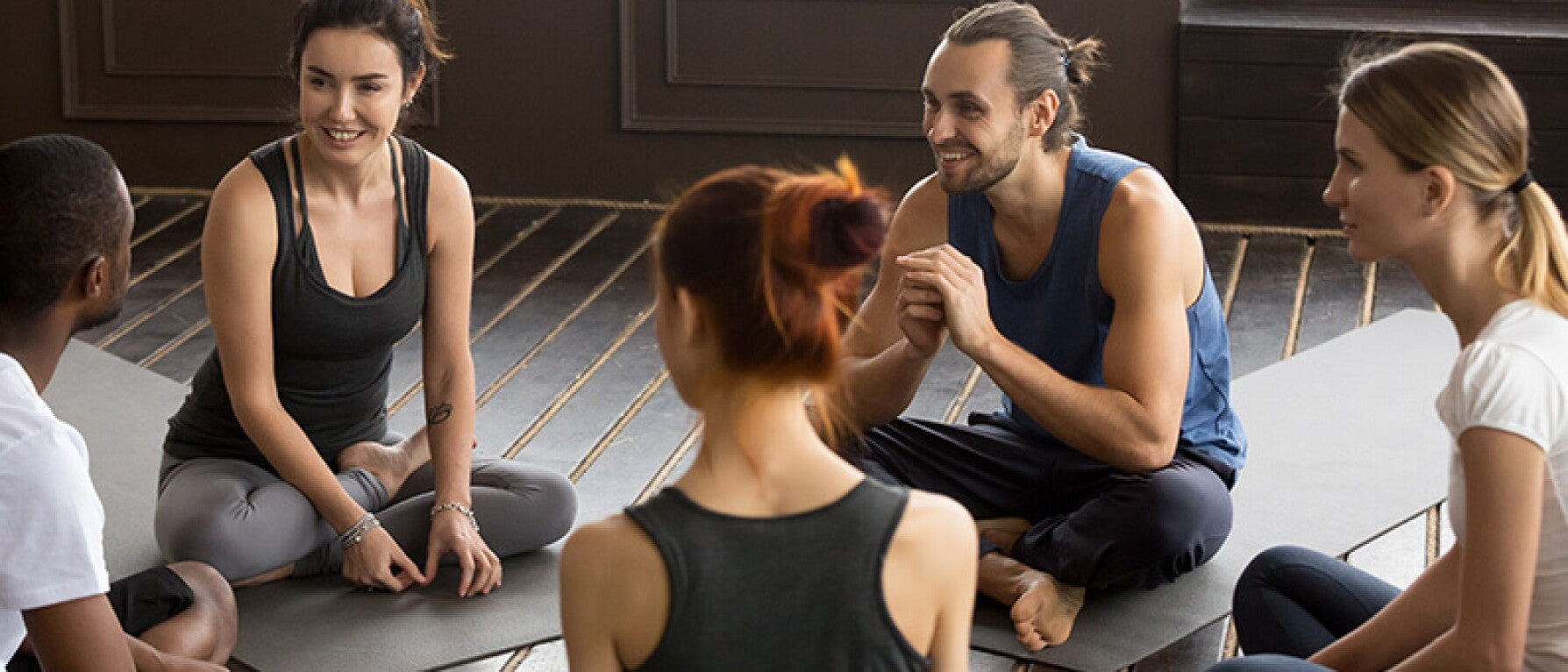Prayer, meditation, chanting, contemplation, journaling, reading, and singing. Chances are you have turned to one or more of these practices throughout your life—from saying prayers before bed as a child to practicing yoga in the morning as an adult—as a way of connecting to your higher self. People are born with the desire to understand things that they can’t explain, and spirituality points the way toward uncovering life’s mysteries. Despite there being countless religions and spiritual beliefs alive and vibrant in today’s world, science shows that spirituality is a universal tendency, and has a powerfully positive effect on happiness, health, and relationships.
Each person’s experience of God will differ depending on how much activity is going on in different areas of the brain. For example, the parietal-frontal circuit of the brain may be responsible for a subject-object relationship with the Divine. This area changes activity depending on how separate from or connected to a person feels in any given moment to the God of his or her understanding.
Spirituality brings a sense of meaning to a chaotic world. When life events (large and small) take on greater significance, spiritual people are better able to cope with stress. Spiritual people are more likely to have gratitude for life’s enjoyable events and to more gracefully process challenging once. Whether it is due to feeling supported by a higher power or being versed in how to surrender to Divine Will, spiritual people identify with life as purposeful, rather than random and meaningless.
Spirituality reassures an order to things, and generally encourages optimism and the pursuit of a joyful life. It helps people to identify their values and appreciate the same values in others. Spiritual people are more altruistic, compassionate, and forgiving of others, because they identify with what connects—rather than what separates—them. Many spiritual traditions encourage belonging to a community, which promote relationships—one of the highest indicators of a happy life. In fact, positive psychology studies show that spiritual people have more positive relationships in general with their spouses, children, and friends.
At your core, you are a spirit that longs to know its fullness. So, practice on! As French idealist philosopher and Jesuit priest Pierre Teilhard de Chardin said, “We are not human beings having a spiritual experience. We are spiritual beings having a human experience.”
What Is Spirituality?
Spirituality is paradoxically both a universal and highly personal concept that tends to highlight two fundamental ideas:- Spirituality is about seeking a meaningful connection with something bigger than yourself and
- Recognizing that what connects you to a higher power also connects you to others.
- Inspirational speaker Mastin Kipp, author of Daily Love: Growing with Grace, says that “Spirituality is the measure of how willing we are to allow Grace—some power greater than ourselves—to enter our lives and guide us along our way.”
- Dr. Brené Brown, expert in vulnerability and empathy, defined spirituality in her book The Gifts of Imperfection as “recognizing and celebrating that we are all inextricably connected to each other by a power greater than all of us, and that our connection to that power and to one another is grounded in love and compassion. Practicing spirituality brings a sense of perspective, meaning, and purpose to our lives.”
- Oprah Winfrey, in her discussion on the topic with spiritual teacher Eckhart Tolle, said, “Spirituality for me is recognizing that I am connected to the energy of all creation, that I am a part of it and it is always a part of me. Whatever label or word we use to describe "it" doesn't matter. Words are completely inadequate.”
The Neuroscience of Spirituality
In their book, How God Changes Your Brain, Andrew Newberg, MD and Mark Robert Waldman (researcher on the brain and spirituality and therapist, respectively) identify the areas of the brain that shape the human perception of God. A concept of God exists in every person’s brain starting in childhood. Several “God circuits” exist that help to shape each person’s understanding of their higher power. Whether or not you pursue a relationship with a higher power is a personal choice, but the capacity does exist in you.Each person’s experience of God will differ depending on how much activity is going on in different areas of the brain. For example, the parietal-frontal circuit of the brain may be responsible for a subject-object relationship with the Divine. This area changes activity depending on how separate from or connected to a person feels in any given moment to the God of his or her understanding.
Benefits of Spirituality
Tal Ben-Shahar, one of the premiere teachers of positive psychology and the good life, defines happiness as “the overall experience of pleasure and meaning.” A happy person isn’t so because they only experience positive emotions. Happy people generally experience pleasurable emotions, but also identify their lives as meaningful—that is, they feel they contribute in some way to their community and that they have an effect on the world around them. Since spirituality is so deeply rooted in providing meaning, it is a direct access point for greater happiness.Spirituality brings a sense of meaning to a chaotic world. When life events (large and small) take on greater significance, spiritual people are better able to cope with stress. Spiritual people are more likely to have gratitude for life’s enjoyable events and to more gracefully process challenging once. Whether it is due to feeling supported by a higher power or being versed in how to surrender to Divine Will, spiritual people identify with life as purposeful, rather than random and meaningless.
Spirituality reassures an order to things, and generally encourages optimism and the pursuit of a joyful life. It helps people to identify their values and appreciate the same values in others. Spiritual people are more altruistic, compassionate, and forgiving of others, because they identify with what connects—rather than what separates—them. Many spiritual traditions encourage belonging to a community, which promote relationships—one of the highest indicators of a happy life. In fact, positive psychology studies show that spiritual people have more positive relationships in general with their spouses, children, and friends.
5 Ways to Increase Your Spirituality
How can you strengthen your sense of spirituality?- Spend five minutes at the end of the day writing down what you are grateful for. Gratitude amplifies the positive things, people, and experiences in your life, and reminds you that you are blessed.
- Find a community of people that supports you in your endeavors. Be it a church, a parents’ group, or a yoga studio, elevate your vibration by being around people who lift you up.
- Meditate daily. As you inhale, invite your greater source in to your life, and as you exhale, offer your loving-kindness out to all beings everywhere.
- Talk to strangers. Smile at people. Engage in conversation with people who you might otherwise pass by. Making connections with others reminds you that you aren’t alone, and that everyone has hardships and blessings in their lives.
- Volunteer your time for someone who is less well-off than you are. Making a difference in someone else’s life increases your sense of purpose and meaning on the planet, in addition to providing a healthy dose of perspective when your world feels small.
At your core, you are a spirit that longs to know its fullness. So, practice on! As French idealist philosopher and Jesuit priest Pierre Teilhard de Chardin said, “We are not human beings having a spiritual experience. We are spiritual beings having a human experience.”




